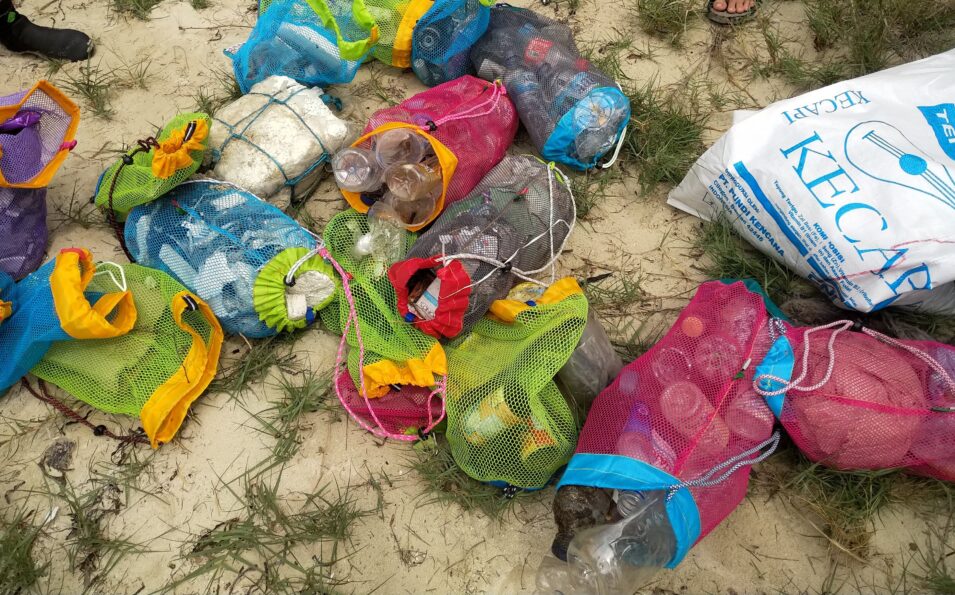Our Goal – End the Flow of Plastic Pollution into the Ocean by 2040
Ocean plastic pollution has reached a crisis level, threatening the world’s delicate marine ecosystems, major industries such as fishing and tourism, food security, and ultimately human health. Every minute, the equivalent of an entire garbage truck of plastic makes its way into the world’s oceans—roughly 11 million tons annually. This rate is expected to double by the end of this decade and triple by 2040.
In 2020, the U.S. Congress passed the Save Our Seas 2.0 Act to accelerate efforts to combat the complex challenge of ocean plastic pollution. This bipartisan legislation directed USAID to craft strategies and implement programs to prevent ocean plastic pollution.
To support implementation of the Save our Seas 2.0 Act, USAID launched the Save Our Seas Initiative in 2022 as our flagship global initiative to combat the growing threat of ocean plastic pollution. The Save Our Seas Initiative focuses on reducing plastic leakage into the ocean by strengthening solid waste management systems and creating inclusive circular economies together with local and national governments, communities, and the private sector. The initiative is supporting 14 country, regional, and global programs in key countries and regions that represent 40 percent of total global mismanaged plastic waste.
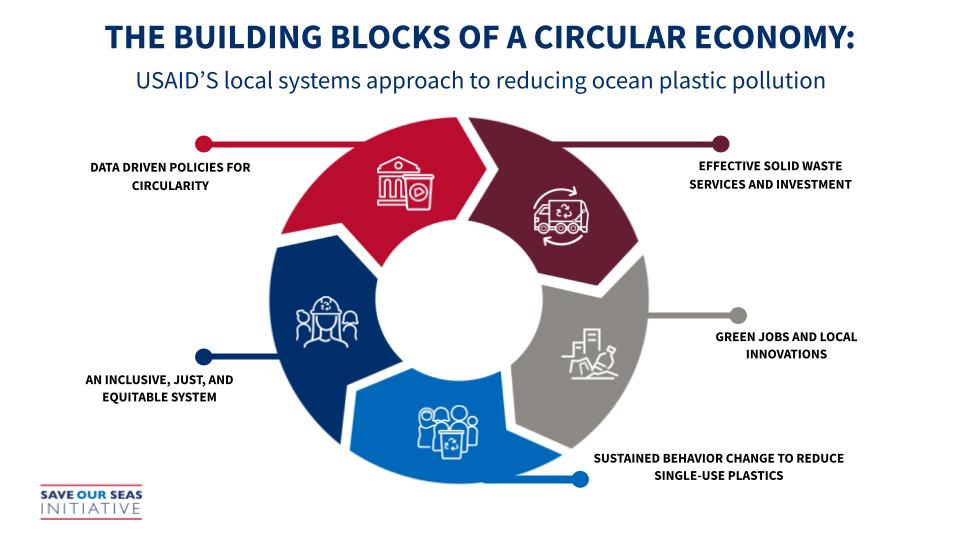
The majority of ocean plastics comes from rapidly growing cities and towns along rivers and coastal areas in the developing world—where waste management systems, infrastructure, and governments struggle to keep pace with growing populations and increasing amounts of waste. Waste management is typically the responsibility of local governments, which are often under-resourced. Our approach focuses on both reducing the waste clogging these systems and helping governments and communities improve their waste management and recycling systems. We do this by promoting data-driven policies from the national to local level and strengthening the capacity of local governments to promote 3Rs—reducing, reusing, and recycling—while better monitoring and managing their solid waste. We also work to develop markets for locally viable 3R innovations that promote green jobs. To empower and improve the livelihoods of the millions that are involved in the waste management sector, we support training for independent waste collectors, connect them to strengthened recycling markets, and engage community-based organizations, women’s organizations, schools, and small businesses who are instrumental in fostering evidence-based sustained social and behavior change to reduce single-use plastics.
Impacts to Date
Prevented the equivalent of more than 127 billion plastic bottles (1.2 million metric tons of plastic) from polluting our environment
Strengthened the capacity of 31 cities to reduce, reuse, recycle and manage solid waste
Improved solid waste services for 11.3 million people
Catalyzed $138 million of private sector and public funding commitments for solid waste management and recycling
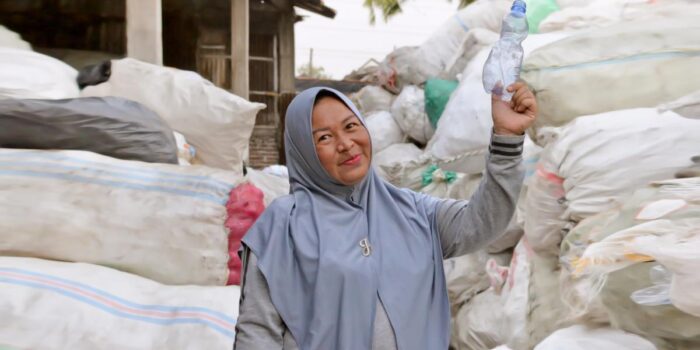
Save Our Seas Initiative Annual Report 2023–2024
In the second year of the Save Our Seas Initiative, USAID accelerated the creation of new country partnerships and programs to fight ocean plastics. To date, the initiative has prevented the equivalent of more than 127 billion plastic bottles from polluting our environment.
The Save Our Seas Initiative in Action: Programs and Partnerships
Clean Cities, Blue Ocean (2019-2025)
USAID’s Clean Cities, Blue Ocean (CCBO) is a six-year, $67 million global program working in more than 25 cities across ten countries of Asia, Latin America, and Pacific and Caribbean islands to target ocean plastics directly at their source. CCBO partners with national and local governments, members of the private sector, NGOs, and local women’s and youth organizations to improve solid waste management systems, build capacity and commitment for the 3Rs, and promote sustainable social and behavior change. Trainings and learning produced under CCBO are publicly available through a self-directed solid waste management online university that has already trained waste professionals from more than 100 countries.
CIRCLE Alliance (2024-2029)
The private sector is involved in all stages of material life cycles, including waste generation, collection, and processing, and can play an integral role in reducing and better managing plastic waste. Waste management solutions offer tremendous potential for innovation, economic growth, and job creation. Recognizing this opportunity, USAID recently partnered with Unilever and EY to launch the CIRCLE Alliance: Catalyzing Inclusive, Resilient, and Circular Local Economies. CIRCLE is a new $21 million public-private collaboration to reduce plastic use and tackle plastic waste. It aims to support women’s economic empowerment, improve livelihoods, and accelerate the development of circular economies through direct support to social enterprises and policies like Extended Producer Responsibility.
Partnership with Circulate Capital (2019-present)
In June 2019, USAID launched an agreement leveraging more than $100 million in a private-sector investment strategy managed by Circulate Capital and funded by multinational companies, including PepsiCo, Procter & Gamble, Dow, Danone, Unilever, and Coca-Cola. USAID provides a $35 million, 50 percent loan-portfolio guarantee through the U.S. International Development Finance Corporation, which is used to de-risk private capital investment in the recycling value chain in South and Southeast Asia. Circulate Capital’s investment in the women-owned Indonesian company Tridi Oasis helped the company evolve into a key player in the country’s recycling industry. Together with USAID’s Clean Cities Blue Ocean, Circulate Capital has enabled another Indonesian company, Prevented Ocean Plastic Indonesia, to set up best-in-class collection infrastructure for coastal communities that have limited or no collection today, to prevent plastic leakage and support local livelihoods.
Partnerships with Other Donors
USAID also partners with other donors to leverage resources and expertise to address the plastics crisis. Examples of these partnerships include:
- A $3 million gift agreement to USAID from the Government of Norway to support grants in Sri Lanka, Indonesia, and the Philippines through Clean Cities, Blue Ocean.
- Co-funding from the Government of Canada for the Mombasa Plastics Prize in Kenya (2022-2023), which encouraged innovation and awareness among aspiring entrepreneurs and leaders in Mombasa County.
- Formalized cooperation on marine debris and plastic pollution, beginning in the Philippines, with the Korean International Cooperation Agency, following the U.S.-Korean Presidential Summit of May 2021.
Country Programs
In addition to global programs and partnerships, the Save Our Seas Initiative leverages the expertise and relationships of our field missions to expand country-level and regional programs to scale these efforts and catalyze greater public and private sector, donor, and interagency funding and partnerships. These new country partnerships are spread across 14 countries and regions with the greatest potential to reduce mismanaged plastic waste polluting the environment.
Where We Work
Click on a country below to learn more about USAID’s work on ocean plastics in each country.
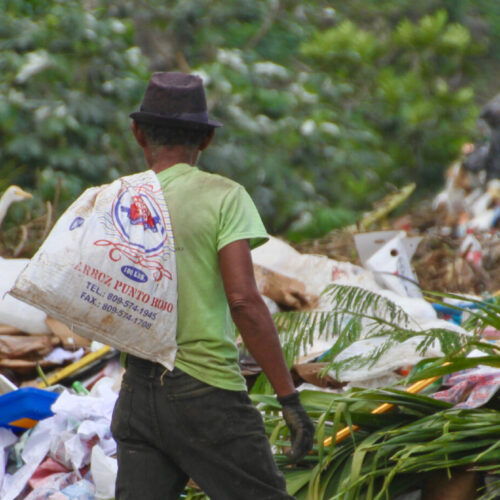
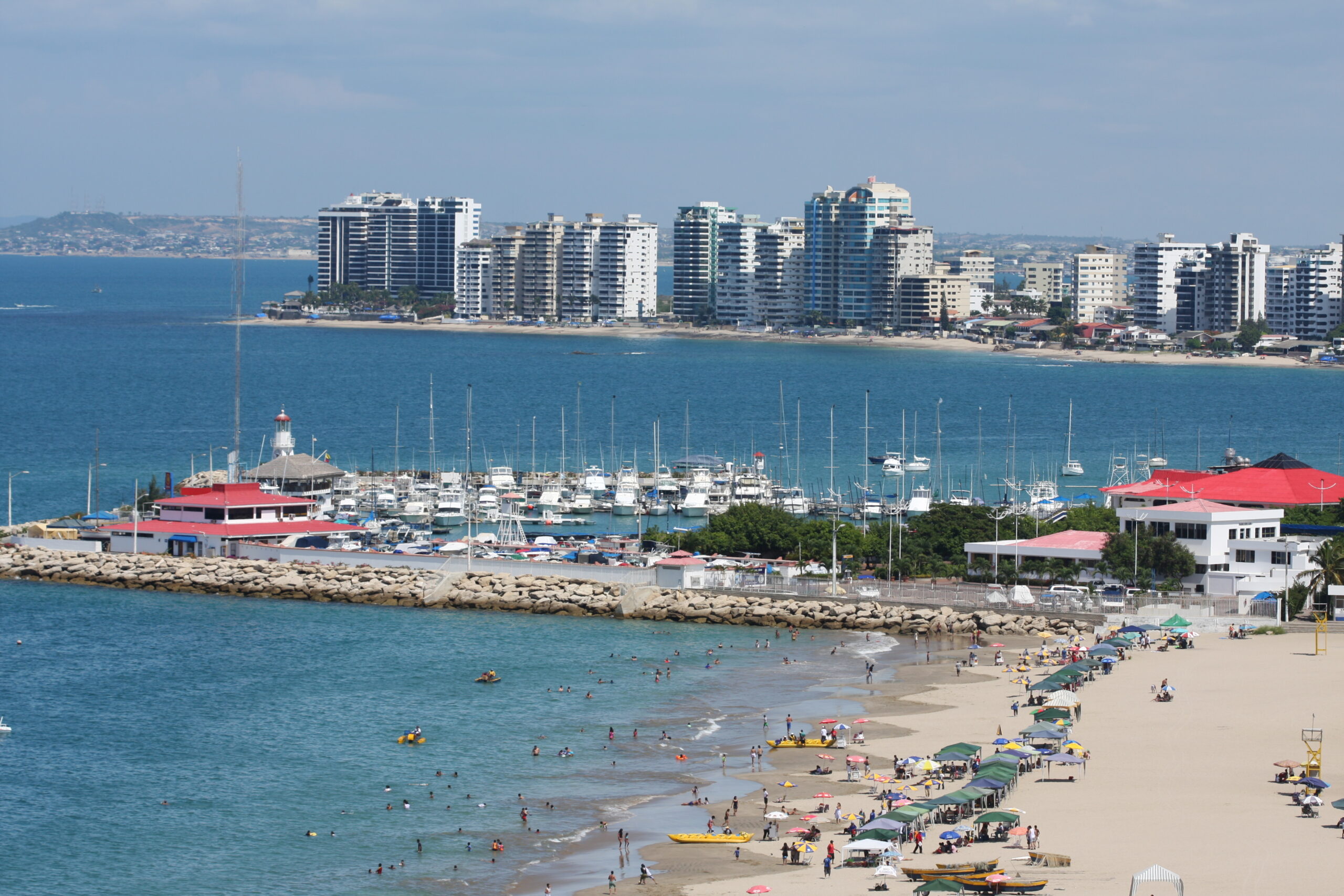
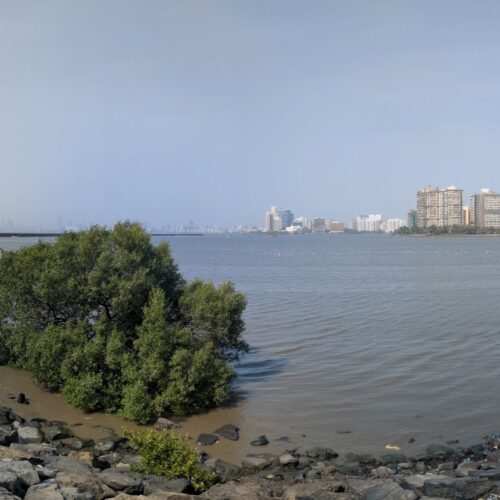
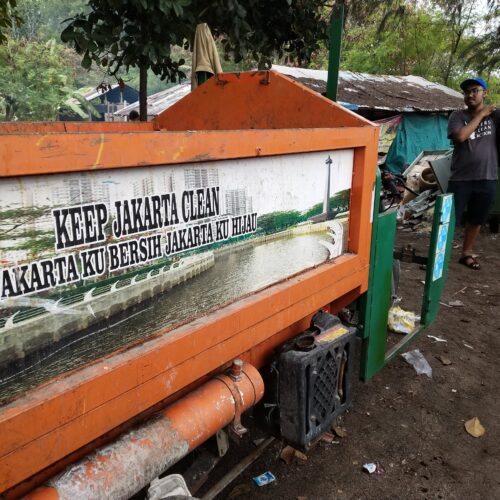
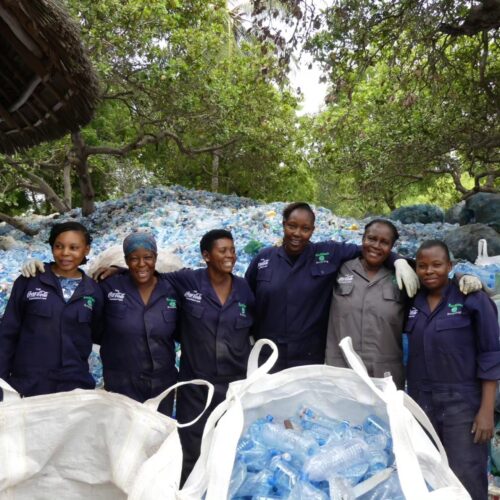
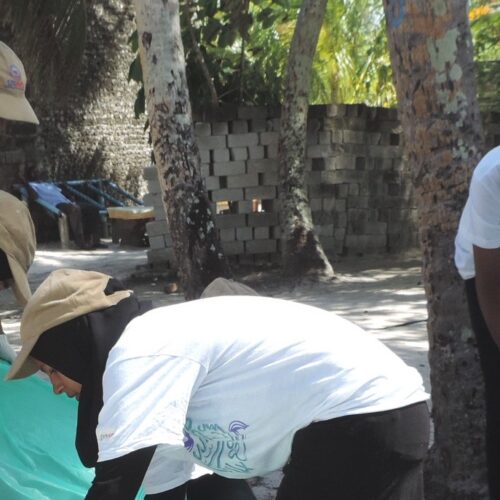
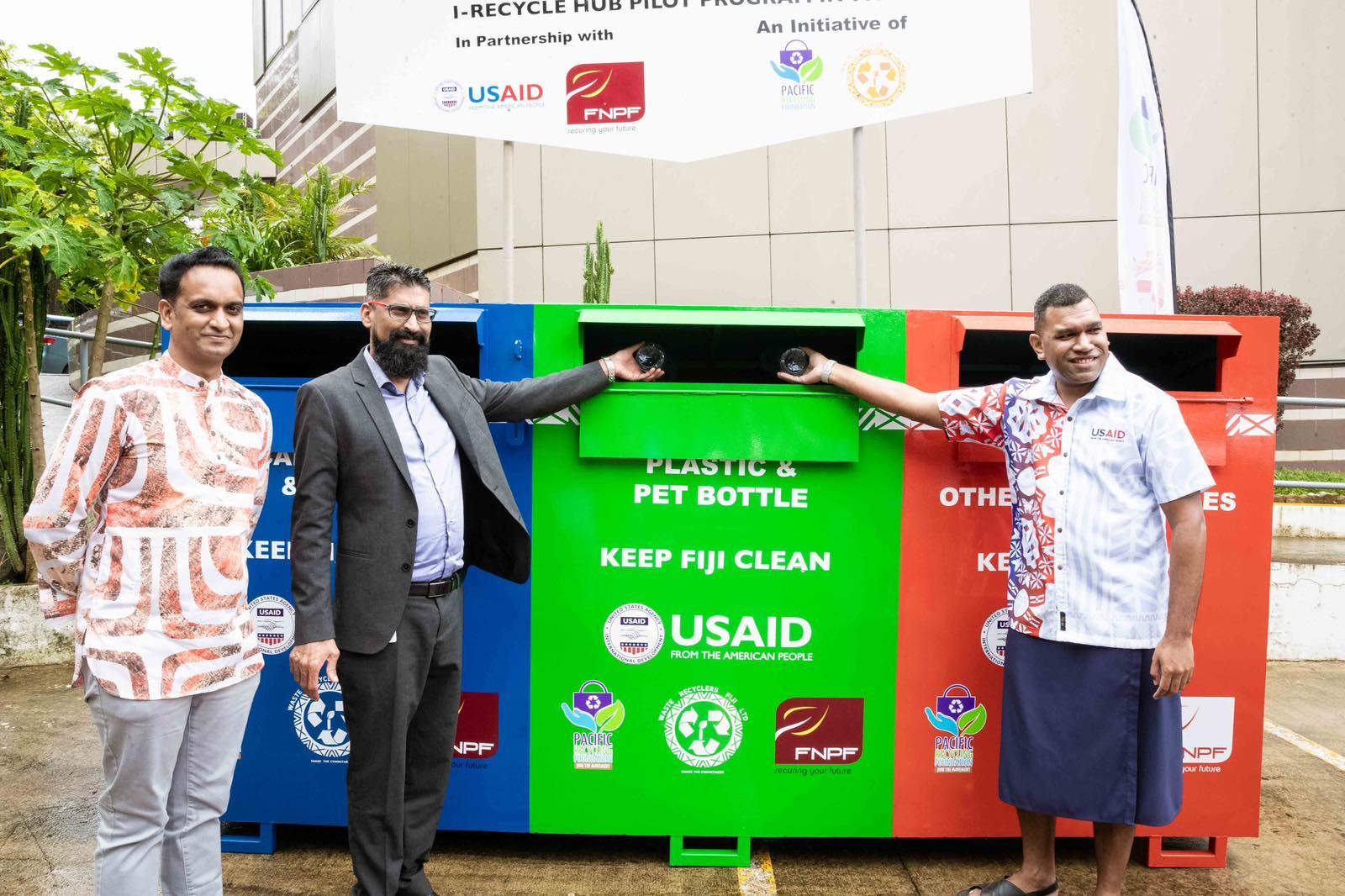
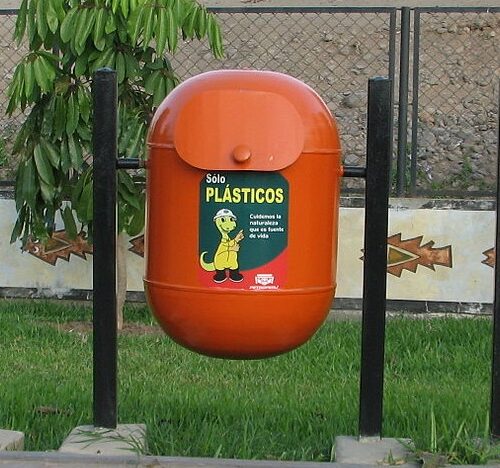
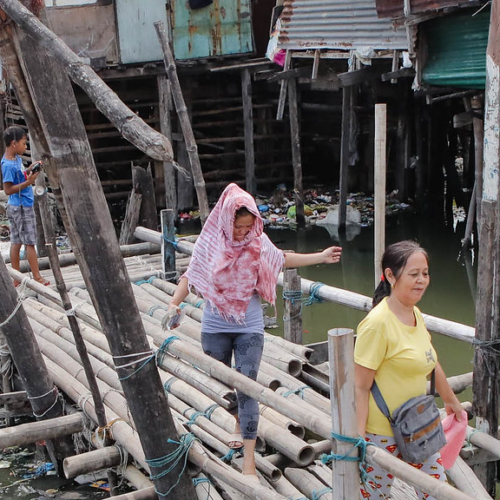
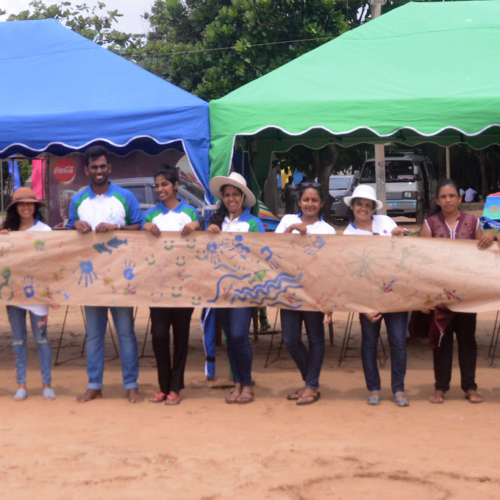
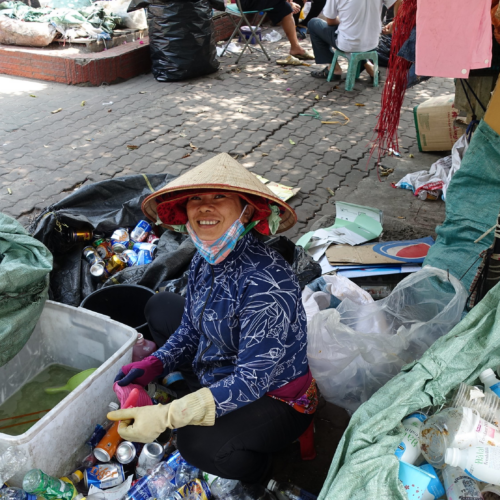
Past Programs
Municipal Waste Recycling Program (2016-2021)
USAID’s five-year Municipal Waste Recycling Program (MWRP) reduced land-based sources of ocean plastic waste in four of the top five contributing countries—Indonesia, Philippines, Sri Lanka, and Vietnam. Through MWRP, USAID provided 30 grants and technical assistance to a variety of local actors, such as NGOs and recycling entrepreneurs, for innovative, local, and sustainable solutions to improve solid waste management and waste recycling efforts in and around targeted cities. As a result, people across the four countries benefited from cleaner and healthier cities with improved waste management services. Having recognized their effectiveness, local governments plan to extend and replicate these approaches.
For more information about USAID’s work on ocean plastics pollution, contact: oceanplastics@usaid.gov
Key Resources
See All ResourcesBộ Công cụ Chỉ số năng lực quản lý chất thải rắn cho địa phương (SCIL)
The Gendered Dimensions of Open Waste Burning
Circular Solutions: Case Studies for Small Island, Large Ocean States and their Communities
Perangkat Indeks Kapasitas Sampah Padat untuk Pemerintah Daerah (SCIL)
Save Our Seas Initiative Fact Sheet
Funding Options for Sustainable Solid Waste Management Systems
Developing Integrated Solid Waste Management Plans to Advance Circular Economies
Save Our Seas Initiative Annual Report 2023-2024
Insights & Updates
See All Insights & Updates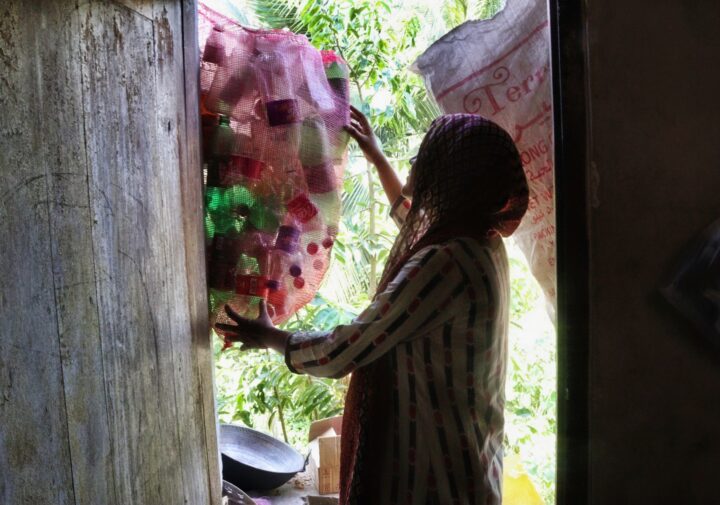
Faces of Change: the Women Leading the Battle to Clean Sri Lanka’s Oceans
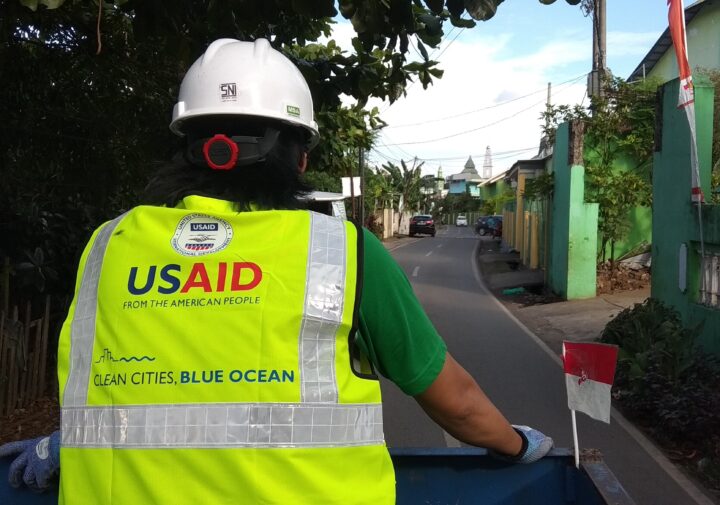
Clean Cities, Blue Ocean Indonesia: From Ocean Pollution to Lasting Solutions
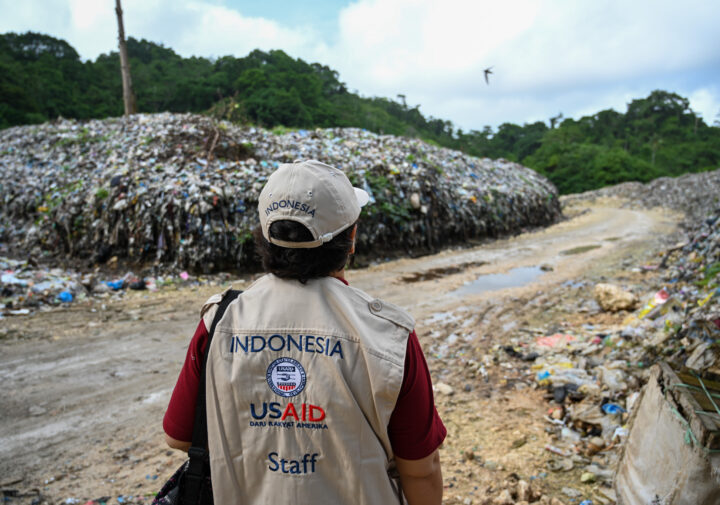
Preventing More Than One Million Tons of Plastic from Entering the Environment
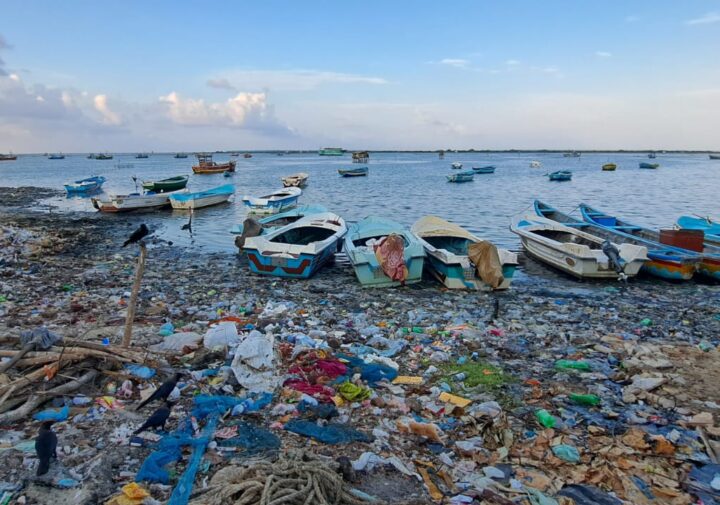
From the Field: How a Coastal Community Revived its Waterways through Improved Waste Management
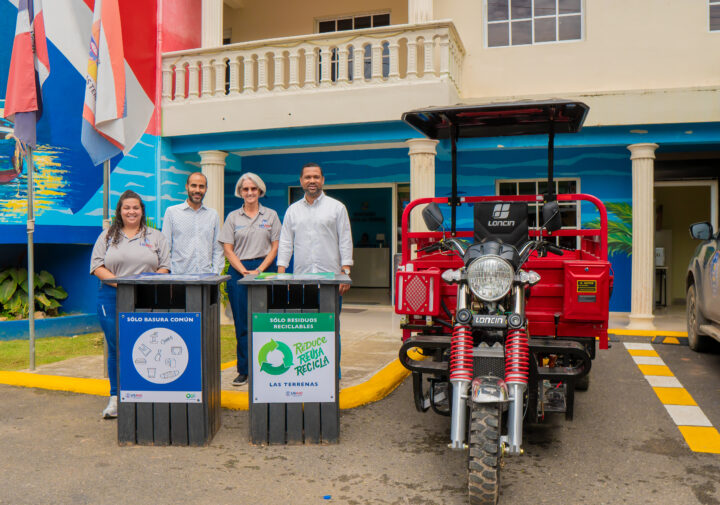
USAID Donates Essential Equipment for Waste Management in Samaná
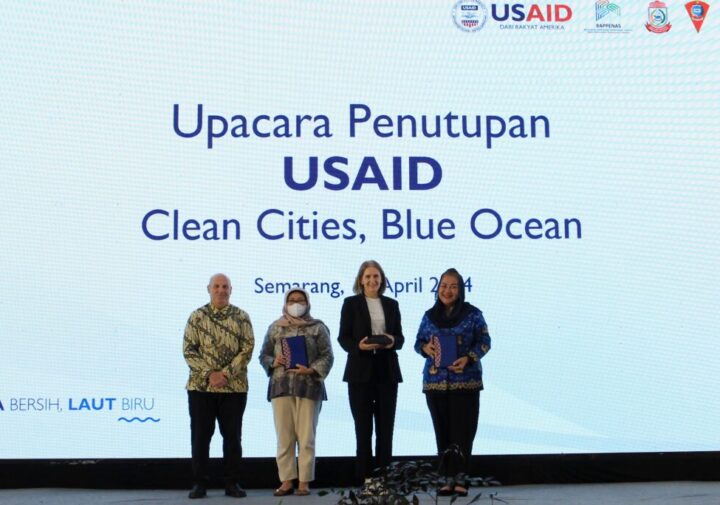
United States and Indonesia Celebrate “Clean Cities, Blue Ocean” Collaboration to Reduce Plastic Pollution
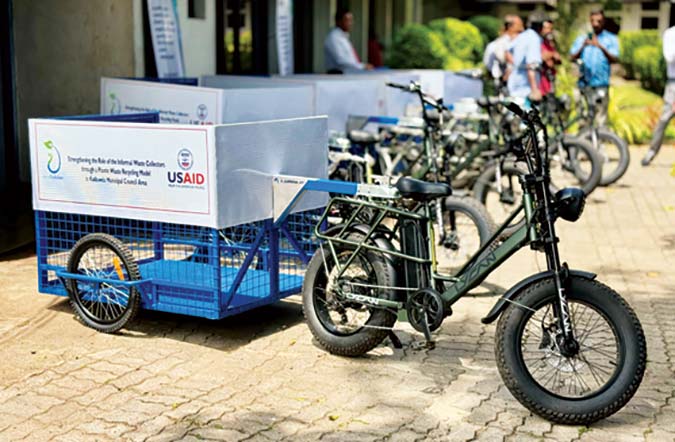
USAID and Lumala Revolutionize Waste Management Practices in Sri Lanka
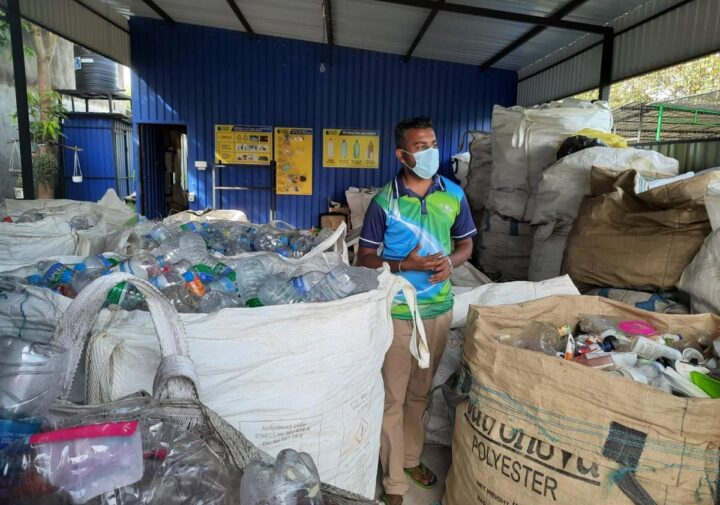
USAID’s Clean Cities, Blue Ocean Program Helps Prevent Over 4,600 MT of Plastic from Entering the Ocean
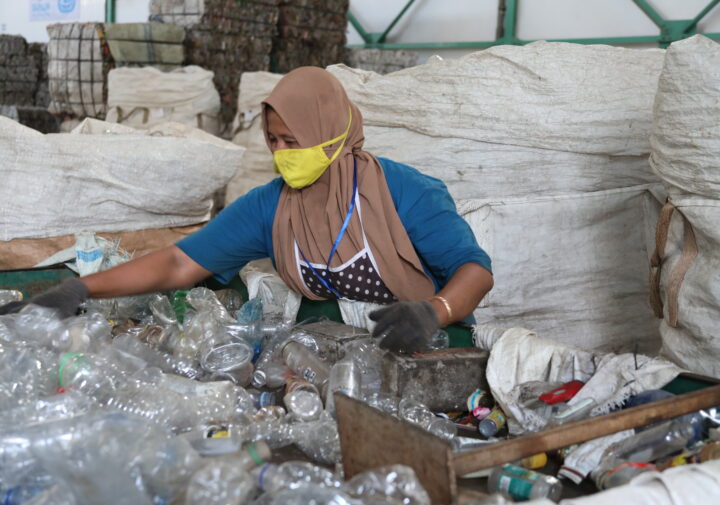
Charting Progress in 2023: USAID’s Highlights in Tackling Ocean Plastics
Projects
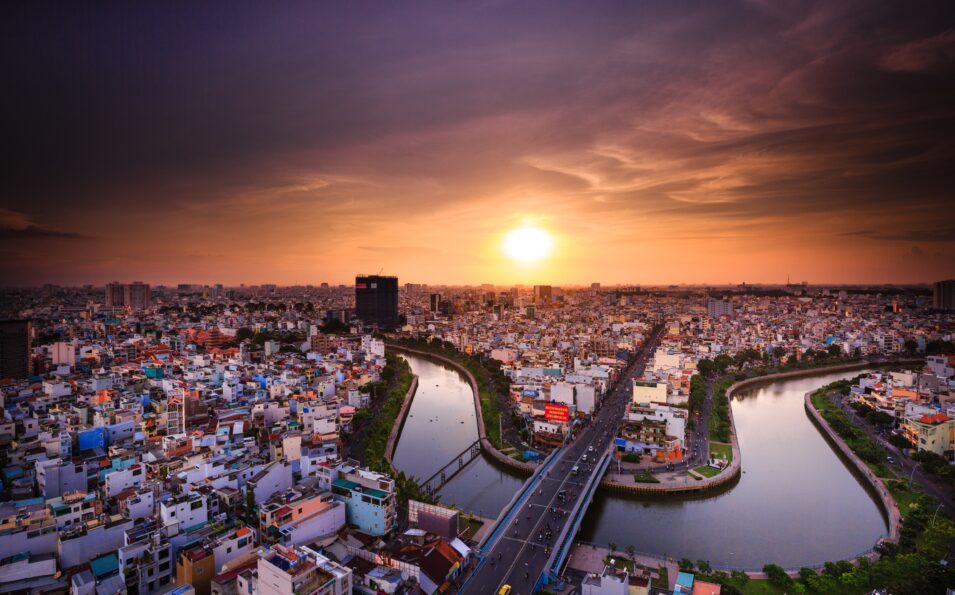
Clean Cities, Blue Ocean
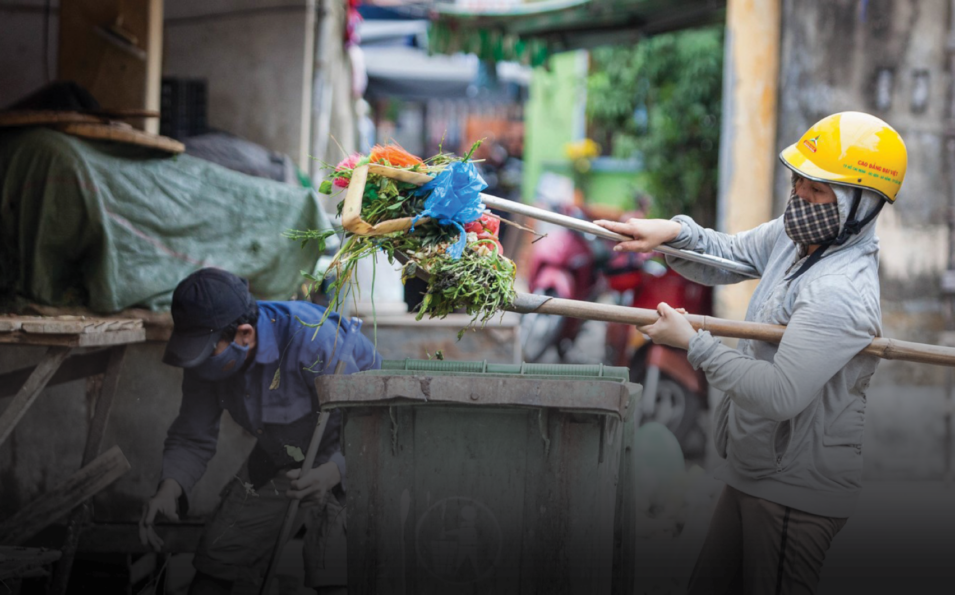
Municipal Waste Recycling Program
